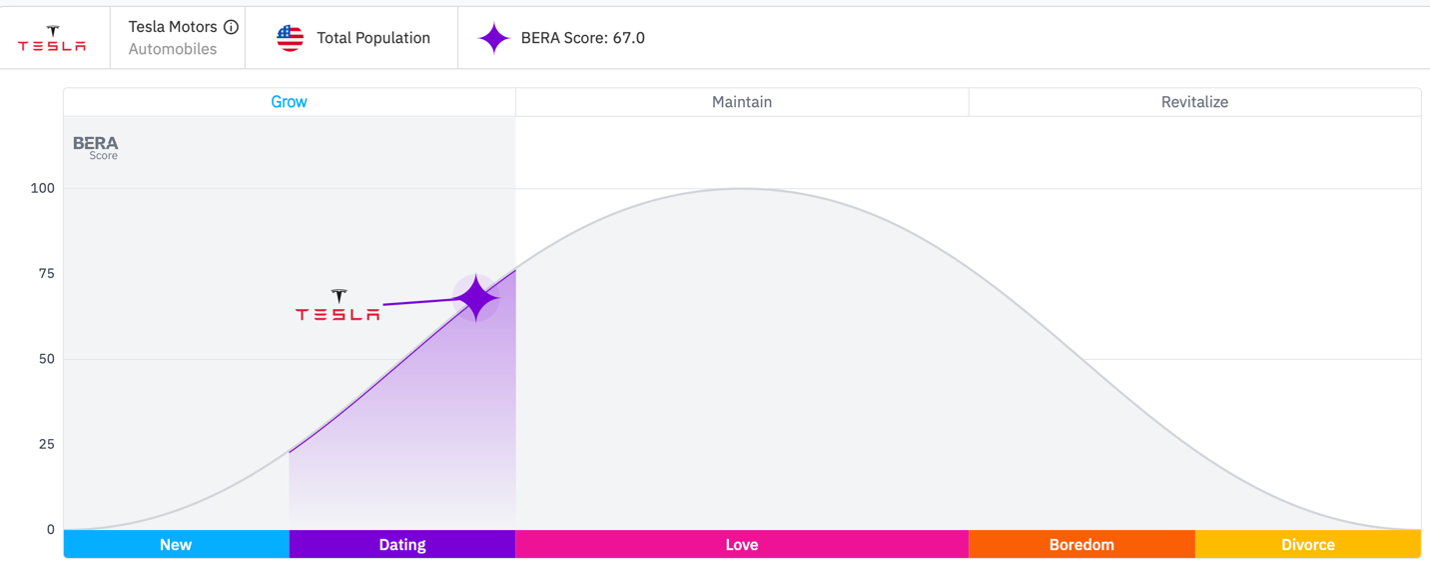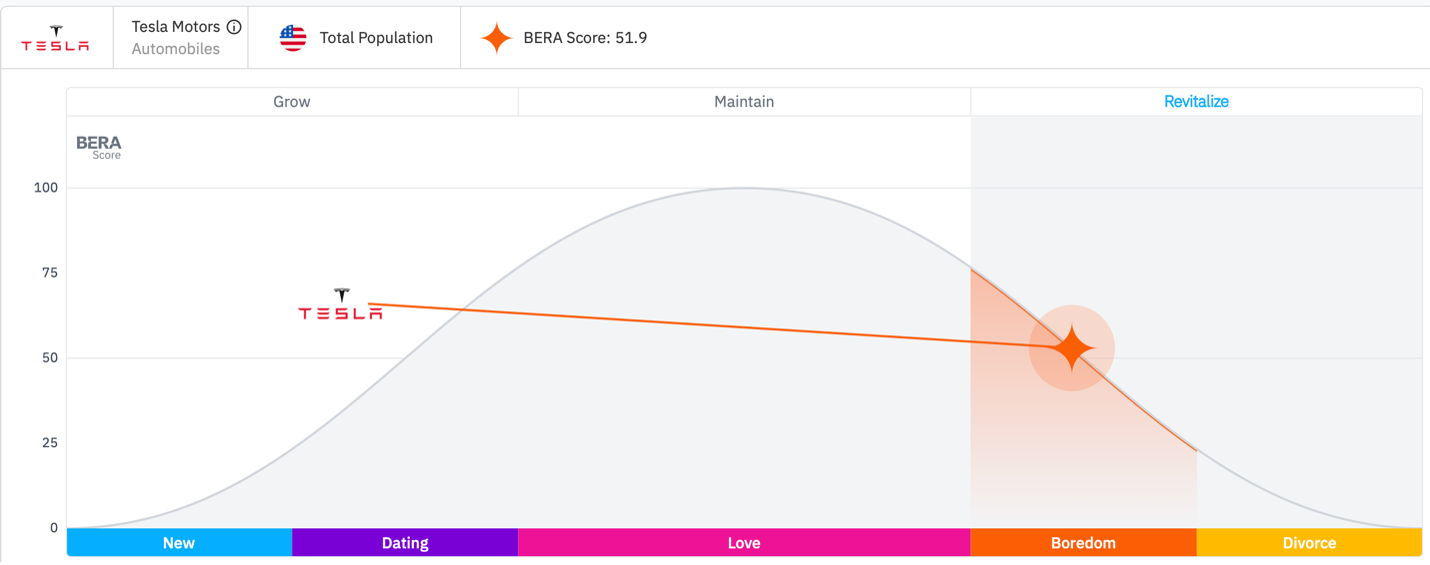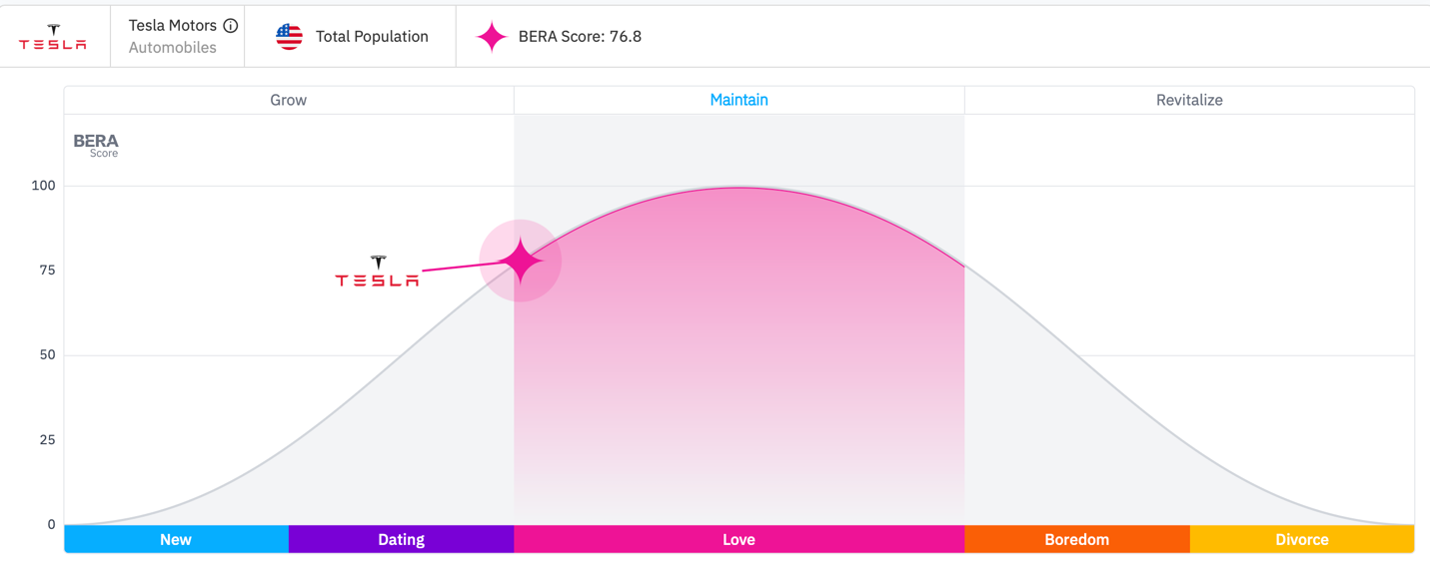When a Brand Becomes Its Own Worst Enemy: Tesla’s Reputation Reckoning
By Ann D'Adamo
April 29, 2025
By Ann D'Adamo
April 29, 2025
Tesla once had a cultural grip most brands only dream about. It didn’t just sell cars—it sold status, identity, a cleaner, cooler future. The brand was synonymous with innovation, vision, and undeniable consumer love.
According to BERA data, as recently as March 2024, consumer sentiment toward Tesla was overwhelmingly positive, driven by a die-hard base of brand loyalists, best-in-class Net Promoter Scores, and glowing word-of-mouth. But now, just one year later, the tide has turned—and it’s not because of the product.
It’s because of the person behind it.
March 2024

March 2025

Elon Musk, Tesla’s CEO and the embodiment of its brand identity, has increasingly become a reputational liability. Just two years ago, customers were proudly recommending Tesla to friends and family—Bloomberg found 99% of Model 3 owners were doing just that. Experian reported a stunning 74.7% repurchase rate. In 2023, Tesla had an NPS of 97. And Consumer Reports named it the most satisfying car brand to own, period.
March 2023

That’s why the downfall is so shocking.
In just a few months, Tesla’s brand consideration has plummeted—hard. Cars.com reports a 25% month-over-month drop in shopper interest. BERA data now shows Tesla trending into negative brand sentiment territory for the first time in years. Even while the company’s stock remains up 50% year-over-year, its value is slipping fast in the hearts and minds of consumers.
And it’s not about the tech, the design, or even the driving experience. It’s about the social risk of being seen driving one. Owning a Tesla used to signal progress. Now it may signal alignment with Musk’s increasingly controversial behavior—from polarizing political stances to erratic leadership across a dizzying portfolio of companies (X, SpaceX, xAI, Neuralink, DOGE… need we go on?).
Meanwhile, the board of directors remains silent. Tesla insiders are reportedly starting to push back, but it may be too little, too late.
This shift is happening in real-time and in very public ways: rising vandalism of Teslas, widespread mockery of the Cybertruck, and consumer discomfort with what their car now “says” about them. Not even the product is safe—Cybertruck recalls now include 46,000+ vehicles due to a literal glue failure that could cause panels to fall off mid-drive.
And consumers have options now. With electric vehicles more accessible and diverse than ever, brands like Hyundai’s Ioniq 5, Cadillac Lyriq, and GMC Hummer EV, along with newcomers Rivian, Polestar, and Lucid are gaining traction. In the same time Tesla’s consideration dropped, those brands saw double- or even triple-digit gains in shopper interest. The competition is no longer just catching up—they’re catching fire.
We’ve long believed that brand relationships are fragile, emotional things. They thrive when trust is nurtured, when leadership aligns with values, and when a brand feels like its “your brand.” Tesla’s collapse in sentiment is a masterclass in what happens when that relationship breaks.
At Inspira, we believe the strongest brands are built on trust, not ego. Tesla’s unraveling is a case study in how quickly loyalty fades when leadership loses sight of the people who matter most—your consumers.
Want to build a brand that connects deeper and lasts longer? Let’s talk.